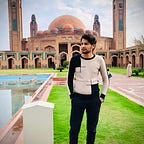Security of State, Security of Person. (INDIA).
India is officially the Republic of India is a country in Asia. India came on the map of world on 15 August 1947 on the division of sub-continent, then two major states become India and Pakistan. They have many conflicts from the start of the day they emerged. India has the second largest population in the world after China and seventh largest country by land area. It is democratic state. Democratic state is that state in which people have the supreme power. People selected the people who rule over their country by election. Everyone have rights to do make his party and if the people of state voted him than the can rule on country. India have the malti party system. In this state everyone has rights to do what they want. Everyone can start his own business by themselves to get profits. In this state government is answerable to his people and do work for the people of state. They give them youth free education and the proper treatment to his people in the hospital. If the government cannot be doing work for his people, then people can also have protested against their government and area minister.
After all the discussion that India is a democratic state and the government of India always given the security of his people. It is the seventh-largest country in the world, with a total area of 3,287,263 square kilometers. The geography of India has the much importance in the world. The country is situated north of the equator between 8°4' north to 37°6' north latitude and 68°7' east to 97°25' east longitude. On the south, India projects into and is bounded by the Indian Ocean. The northern frontiers of India are defined largely by the Himalayan mountain range, where the country borders China, Bhutan, and Nepal. Its western border is with Pakistan.
Human rights in India is an issue complicated by the country’s large size and population, widespread poverty, lack of proper education, as well as its diverse culture, despite its status as the world’s largest sovereign, secular. It is commonly believed that the riots were incited by a threatening speech and an ultimatum. Different culture and religion people are living in this state. It is a Hindu state and people enjoys the equal rights. In the state everyone got the basic rights like education and medicines. In every thousand kilometers the language and their culture changes but government insure the security of all their nation at a same level. The 2016 report of Human Rights Watch accepts the above-mentioned facilities but goes to state that India has serious human rights concerns. Civil society groups face harassment and government critics face intimidation and lawsuits. Free speech has come under attack both from the state and by interest groups. Muslim and Christian minorities accuse authorities of not doing enough to protect their rights.
